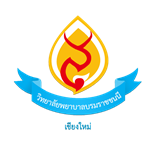The Effects of a Self-Efficacy Enhancement Program Using Simulation Scenarios on Knowledge, Skills, and Self-Efficacy in Advanced Cardiovascular Life Support Among Nursing Students
Keywords:
Self-Efficacy Enhancement Program, Simulation Scenarios, Advanced Cardiovascular Life Support, Nursing StudentsAbstract
This quasi-experimental research with a pretest-posttest control group design aimed to examine the effects of a self-efficacy enhancement program using simulation scenarios on knowledge, skills, and self-efficacy in advanced resuscitation among nursing students at Boromarajonani College of Nursing, Chiang Mai. The sample consisted of 120 third-year nursing students, selected through simple random sampling and divided equally into an experimental group and a control group (60 participants each). The intervention tool was a self-efficacy enhancement program using simulation scenarios, which included patient simulations, mannequins, task trainers, and demonstration videos. Data collection instruments included an advanced resuscitation knowledge test, an advanced resuscitation skills assessment, and a self-efficacy assessment in advanced resuscitation. Descriptive statistics were used to analyze general data, and Independent t-test was employed to compare knowledge, skills, and self-efficacy in advanced resuscitation between the experimental and control groups.
The research findings revealed that after participating in the self-efficacy enhancement program using simulation scenarios, the experimental group had significantly higher mean scores in knowledge, skills, and self-efficacy compared to the control group (p-value < 0.001). These results highlight the importance of simulation-based training in medical education to enhance students' competencies in managing critically ill and emergency patients. Enhancing students’ self-efficacy through simulation scenarios can increase their confidence and proficiency in real clinical practice.
References
นนทรัตน์ จำเริญวงศ์, ชลกนก ธนาภควัตกุล, สุพรรณิการ์ ปิยะรักษ์, ชยธิดา ไชยวงษ์ และทิพย์ ลือชัย. (2565). ผลการเตรียมความพร้อมในการฝึกปฏิบัติการพยาบาล โดยใช้สถานการณ์จำลองเสมือนจริงต่อการรับรู้ความสามารถและผลลัพธ์ที่คาดหวังในการฝึกปฏิบัติงานบนหอผู้ป่วยของนักศึกษาพยาบาลศาสตรบัณฑิตชั้นปีที่ 3 วิทยาลัยพยาบาลบรมราชชนนี เชียงใหม่, วารสารแพทย์นาวี, 49(1), 135-149.
พรรณี ศรีพารา. (2564). ผลของการใช้โปรแกรมการสอนการช่วยฟื้นคืนชีพขั้นสูงโดยใช้สถานการณ์จาลองต่อความรู้และทักษะของพยาบาลโรงพยาบาลโกสุมพิสัยจังหวัดมหาสารคาม. วารสารวิจัยสาธารณสุขศาสตร์ มหาวิทยาลัยราชภัฏอุบลราชธานี, 10(1), 26-35.
ภาวิณี แพงสุข และชลดา กิ่งมาลา. (2564). ผลของการใช้สถานการณ์จำลอง ต่อความรู้ และความมั่นใจในความสามารถในการดูแลผู้ป่วยที่มีภาวะฉุกเฉินของนักศึกษาหลักสูตรพยาบาลศาสตรบัณฑิตชั้นปีที่ 3.วารสารพยาบาลสงขลานครินทร์, 41(2), 89-100.
สถาบันการแพทย์ฉุกเฉินแห่งชาติ. (2564). แผนหลักการแพทย์ฉุกเฉินแห่งชาติ ฉบับที่ 3.1 พ.ศ. 2562-2564. สืบค้นเมื่อ 24 ตุลาคม 2564 จาก https://www.niems.go.th/1/upload/migrate/file/ 256112221455115037_GWJdMn5ejp3gVAdc.pdf.
Aebersold, M. (2018). Simulation-based learning: No longer a novelty in undergraduate education. Online Journal of Issues in Nursing, 23(2). 1-1. https://doi.org/10.3912/OJIN.Vol23No02PPT39
Bandura, A., & Wessels, S. (1997). Self-efficacy. Cambridge: Cambridge University Press.
Cohen, J. (1988). Statistical power analysis for the behavioral sciences (2nd ed.). Hillsdale, NJ: Lawrence Erlbaum Associates, Publishers.
Faul, F., Erdfelder, E., Buchner, A., & Lang, A. G. (2009). Statistical power analyses using G* Power 3.1: Tests for correlation and regression analyses. Behavior Research Methods, 41(4), 1149-1160. https://doi.org/10.3758/BRM.41.4.1149
Jeffries, P. R. (2020). The role of simulation in nursing education: A regulatory perspective. Journal of Nursing Regulation, 11(2), 27-33. https://doi.org/10.1016/S2155-8256(20)30148-2
Kaddoura, M. A. (2021). The effectiveness of simulation-based learning in nursing education: A review. Nurse Education in Practice, 50, 102929. https://doi.org/10.1016/j.nepr.2021.102929
Kapucu, S. (2017). The effects of using simulation in nursing education: A thorax trauma case scenario. International Journal of Caring Sciences, 10(2), 1069-1074.
Kim, S. H., Issenberg, B., & Roh, Y. S. (2020). The effects of simulation-based advanced life support education for nursing students. CIN: Computers, Informatics, Nursing, 38(5), 240-245. https://doi.org/10.1097/CIN.0000000000000560
Kolb, D. A. (2015). Experiential learning: Experience as the source of learning and development (2nd ed.). London: Pearson Education.
Panchal, A. R., et al. (2020). Part 3: adult basic and advanced life support: 2020 American Heart Association guidelines for cardiopulmonary resuscitation and emergency cardiovascular care. Circulation, 142(16_Suppl_2), S366-S468. https://doi.org/10.1161/CIR.0000000000000916
Schön, D. A. (2017). The reflective practitioner: How professionals think in action. Abingdon, England; New York, NY: Routledge.
Zheng, J., et al. (2023). Incidence, process of care, and outcomes of out-of-hospital cardiac arrest in China: A prospective study of the BASIC-OHCA registry. The Lancet Public Health, 8(12), e923-e932. https://doi.org/10.1016/S2468-2667(23)00173-1

Downloads
Published
How to Cite
Issue
Section
License
Copyright (c) 2024 Journal of Nursing and Public Health Research

This work is licensed under a Creative Commons Attribution-NonCommercial-NoDerivatives 4.0 International License.
1. บทความหรือข้อคิดเห็นใด ๆ ที่ปรากฏในวารสารวิจัยการพยาบาลและการสาธารณสุข ที่เป็นวรรณกรรมของผู้เขียน บรรณาธิการไม่จำเป็นต้องเห็นด้วย
2. บทความที่ได้รับการตีพิมพ์ถือเป็นลิขสิทธิ์ของ วารสารวิจัยการพยาบาลและการสาธารณสุข








